By Tom Wintaugh | October 19, 2023

See why top ecommerce brands use Miva’s no-code platform to run
multiple stores, manage massive catalogs, and grow their revenue.
Ecommerce subscription models have proven wildly popular for B2C merchants and shoppers alike, but B2B sellers also have a long history of offering customers recurring orders and discounts for long term purchasing commitments. Now, wholesale sellers can take advantage of easy-to-manage ecommerce platform subscription features to bring classic B2B subscriptions into the digital age. In this blog, we’ll list the major benefits that B2B sellers stand to gain from this type of selling.
Benefit: Subscriptions help merchants shore up steady, predictable revenue. Being able to reliably estimate revenue also helps businesses budget their resources with greater accuracy.
Example: Automotive companies providing vehicle components on a subscription basis to repair shops can facilitate streamlined budgeting for both parties. The supplier can predict revenue, while the repair shop can plan their budget knowing the fixed costs for procuring the parts in the future.
Benefit: Subscription models support enduring relationships with clients, encouraging loyalty. Customers who rely upon a company to fulfill staple products feel supported and their needs understood.
Example: A medical equipment supplier can offer hospitals and clinics subscriptions for regular supplies of essential healthcare products. Over time, this fosters trust, with the healthcare facilities relying on the consistent quality and timely delivery of the products.
Benefit: Having a subscription model can help merchants forecast demand more precisely, allowing for efficient inventory management and reduced storage costs.
Example: Food and beverage wholesalers can adopt a subscription model to supply restaurants with premium ingredients on a regular schedule. This arrangement helps both parties in effectively managing inventory, reducing wastage, and optimizing stock levels based on a predictable demand pattern.
Benefit: Subscription services pave the way for up-selling and cross-selling opportunities, with many opportunities to communicate new offers while managing the original subscription.
Example: Office supply vendors offering a paper subscription have many opportunities to up-sell or cross-sell related products, such as offering discounted rates on printer ink, encouraging buyers to purchase more.
Benefit: B2B subscriptions allow for the personalization of products and services to meet the unique requirements of different businesses, dialing in satisfaction and encouraging customer retention.
Example: A sporting goods manufacturer could offer retail outlets customized subscription packages, allowing them to choose a range of products that cater specifically to their clientele or specialty.
Integrating B2B subscriptions into your business strategy not only streamlines the purchasing process for your clients, but also cultivates a stable and predictable revenue stream for you. Subscription models can foster stronger relationships with B2B clients, who will appreciate personalized, tailored solutions that make their work easier. In these ways, recurring purchase features are a gift to seller and buyer alike.

Katy Ellquist, Miva’s Digital Marketing Strategist, is an accomplished writer, marketer, and social media analyst who has created sophisticated content campaigns for a broad range of professional clients. She brings to Miva a complex understanding of ecommerce trends and techniques, building upon extensive digital agency experience and a prior role as direct liaison to Miva’s top accounts. Katy is a regular contributor to the Miva blog, covering essential ecommerce topics like design & development strategy, site optimization, and omnichannel selling, with the goal of increasing the actionable knowledgebase of the entire Miva community.
Love it? Share it!
No worries, download the PDF version now and enjoy your reading later...
Download PDF